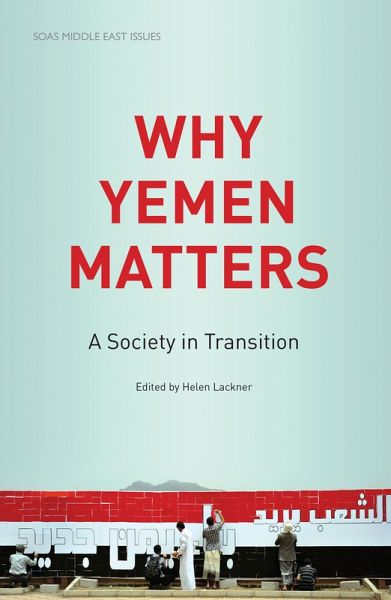
Why Yemen Matters (eBook, ePUB)
A Society in Transition

PAYBACK Punkte
0 °P sammeln!
In November 2011, an agreement brokered by the GCC brought an end to Yemen's tumultuous uprising. The National Dialogue Conference has opened a window of opportunity for change, bringing Yemen's main political forces together with groups that were politically marginalized. Yet, the risk of collapse is serious, and if Yemen is to remain a viable state, it must address numerous political, social and economic challenges. In this invaluable volume, experts with extensive Yemen experience provide innovative analysis of the country's major crises: centralized governance, the role of the military, et...
In November 2011, an agreement brokered by the GCC brought an end to Yemen's tumultuous uprising. The National Dialogue Conference has opened a window of opportunity for change, bringing Yemen's main political forces together with groups that were politically marginalized. Yet, the risk of collapse is serious, and if Yemen is to remain a viable state, it must address numerous political, social and economic challenges. In this invaluable volume, experts with extensive Yemen experience provide innovative analysis of the country's major crises: centralized governance, the role of the military, ethnic conflict, separatism, Islamism, foreign intervention, water scarcity and economic development. This is essential reading for academics, journalists, development workers, diplomats, politicians and students alike.
Dieser Download kann aus rechtlichen Gründen nur mit Rechnungsadresse in A, B, BG, CY, CZ, D, DK, EW, E, FIN, F, GR, H, IRL, I, LT, L, LR, M, NL, PL, P, R, S, SLO, SK ausgeliefert werden.













